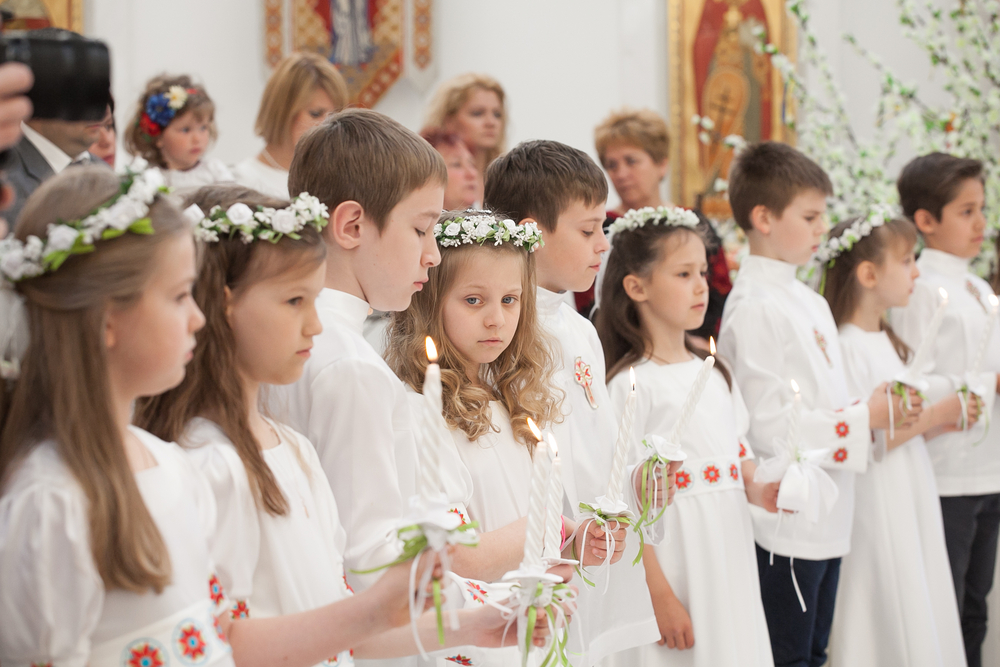Life Stages: Childhood
Common Practices
Children in Spain are allowed a lot of freedom. Spaniards take their children with them everywhere, and children are always welcome. Strangers are not shy about talking to children or offering them sweets or cookies.
Children of both sexes are raised with affection by their parents, grandparents, aunts, uncles, and older siblings. Children are expected to be loving, obedient, helpful, and respectful toward elders. Spaniards do not usually pamper children with toys, and children are more likely to be treated as adults in an intensely social environment.
Families also celebrate birthdays and, less frequently, the name days of patron saints. Parties typically include games, cake, songs, and presents.
Spain has the lowest birth rate in the EU and the highest proportion of women over the age of 50 taking care of children. If both parents work, then grandmothers help to look after the child.
Religious Tradition
At around 10 years of age, Roman Catholic children celebrate their First Communion, usually in May or June. They recite a memorized profession of faith at their local church and receive the Eucharist for the first time. The children dress up (girls primarily in white dresses and boys often in sailor suits). The children receive gifts (traditionally Bibles or other religious articles), and the whole family often celebrates by going out to a restaurant or hosting a party for friends and relatives.
School and Work
Spain offers free and compulsory public education until children turn 16. School starts with nursery or pre-school (preescolar) from the ages of 3 to 5. Compulsory basic general education begins at 6 years of age in a primary school (escuela primaria) and lasts for six years.
At the age of 12 (equivalent to the sixth grade) pupils move on to secondary education (educación secundaria obligatori) for the next four years. Spanish state schools lack extra-curricular activities such as sports, music, drama, and arts and crafts. State schools don’t have school clubs or sports teams, and children who want to play team sports usually have to join a local club.
Children under 16 are not allowed to work under Spanish law and are typically not expected to contribute to the household income, although girls are expected to help their mother in housework. Sources indicate, however, that there are hundreds of thousands of illegal child workers in Spain.
Copyright © 1993—2025 World Trade Press. All rights reserved.

 Spain
Spain 

